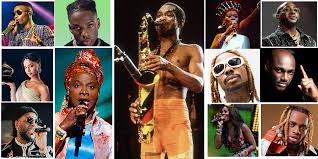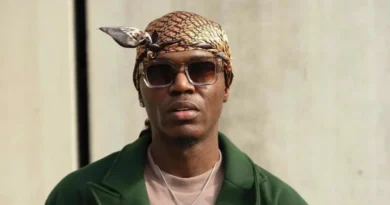The Evolution of Afrobeats: From Fela to Rema
Introduction
Afrobeats has become one of the world’s fastest-growing music genres, captivating audiences from Lagos to London, New York to Tokyo. Known for its infectious rhythms, blend of African percussion, Western pop influences, and irresistible dance energy, Afrobeats is more than just music—it’s a cultural movement.
But how did this global phenomenon begin? To understand its evolution, we must trace it back to its roots in Afrobeat, pioneered by the legendary Fela Anikulapo Kuti, and follow its journey through the early 2000s into the international stage, now headlined by stars like Burna Boy, Wizkid, Davido, and the Gen Z sensation Rema.
This is the story of Afrobeats—its past, present, and future.
1. The Roots: Fela Kuti and Afrobeat
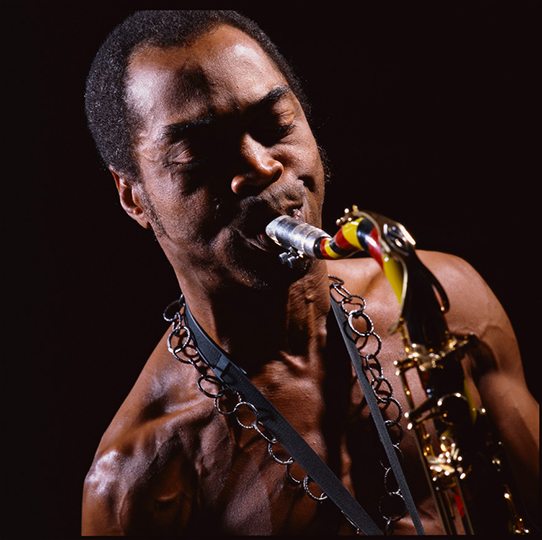
Before “Afrobeats” (with an s) became the buzzword, there was Afrobeat, a revolutionary sound created in the 1970s by Fela Kuti.
- The sound: Afrobeat fused traditional Yoruba rhythms, highlife, jazz, and funk, layered with complex instrumentals and heavy percussion.
- The message: Beyond the music, Afrobeat was political. Fela used his art as a weapon against corruption, military dictatorship, and social injustice in Nigeria.
- Why it matters: Fela laid the foundation—not just musically, but culturally—for what would later evolve into Afrobeats. His fusion of African identity with global sounds inspired generations of artists.
2. The Bridge: Highlife, Hip-Hop, and 1990s Influences
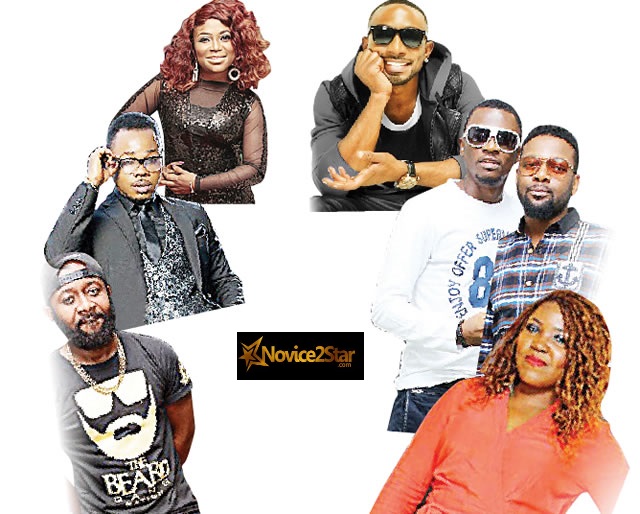
In the 1980s and 1990s, Nigeria’s music scene shifted toward highlife, juju, and hip-hop influences. Artists like Majek Fashek, Lagbaja, and King Sunny Ade brought African music to international stages.
- Highlife’s role: It kept Afrocentric rhythms alive, with brass, guitar melodies, and storytelling lyrics.
- Hip-Hop influence: Nigerian youths were increasingly exposed to American hip-hop and R&B, leading to experimentation with rap in local dialects (e.g., Remedies and Plantashun Boiz).
- The fusion era: This period was crucial—it gave birth to the hybrid sound that would become Afrobeats.
3. The Birth of Modern Afrobeats – Early 2000s
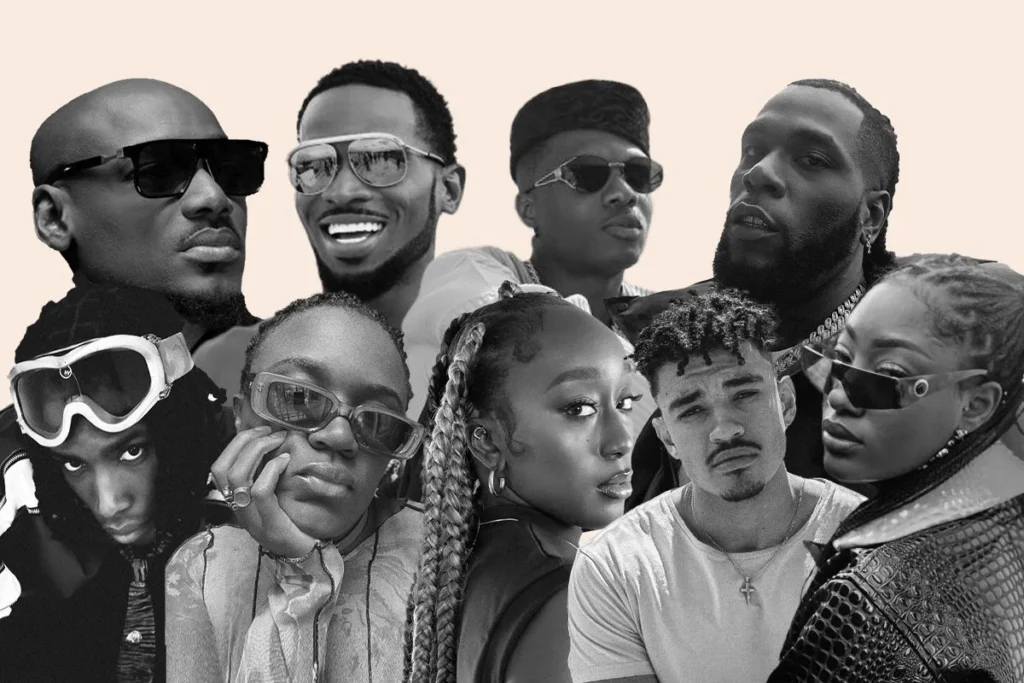
The early 2000s marked the official rise of Afrobeats as a genre, characterized by a fusion of African drum patterns with hip-hop, dancehall, and R&B.
- Pioneers: Artists like 2Baba (2Face Idibia), D’banj, P-Square, and Styl-Plus popularized the sound, mixing Nigerian slang with global pop styles.
- Why it clicked: Afrobeats was relatable to Nigerians, danceable at parties, and increasingly marketable internationally.
- Breakout moment: 2Baba’s hit African Queen (2004) introduced Nigerian contemporary sound to global audiences, long before streaming platforms dominated.
4. The Global Explosion – Wizkid, Davido, Burna Boy
By the 2010s, Afrobeats had gone from a regional sound to a global sensation, thanks to a new wave of artists who blended local authenticity with international appeal.
Wizkid
- Rose to fame with hits like Holla at Your Boy and later collaborated with Drake on One Dance (2016), which topped global charts.
- Became a fashion and cultural icon, representing Afrobeats on stages like the O2 Arena in London.
Davido
- Known for his energetic sound and party anthems, Davido pushed Afrobeats into mainstream clubs worldwide.
- Hits like Fall and If became some of the most streamed African songs of all time.
Burna Boy
- Dubbed the “African Giant,” Burna Boy fused Afrobeat (Fela’s original style) with Afrobeats, reggae, and dancehall.
- His Grammy-winning album Twice As Tall (2021) cemented Afrobeats as a respected global genre.
5. The Streaming Era and International Collaborations
Streaming platforms like Spotify, Apple Music, and YouTube revolutionized Afrobeats. Nigerian artists no longer relied solely on local radio; they now had direct access to global audiences.
- Collaborations: Beyoncé’s The Lion King: The Gift album (2019) featured Wizkid, Burna Boy, Tiwa Savage, and Mr Eazi, introducing Afrobeats to millions of new listeners.
- Diaspora effect: Nigerian and African communities abroad amplified the genre, turning it into a global cultural movement.
6. The New Generation – Rema and the Gen Z Sound
Enter Rema, the young superstar who represents the future of Afrobeats. Signed under Jonzing World/Mavin Records, he burst onto the scene in 2019 with Dumebi and has since crafted a futuristic, genre-bending style he calls Afrorave.
- Rema’s uniqueness: He mixes Afrobeats with trap, EDM, and Middle Eastern influences, creating a sound that resonates with Gen Z globally.
- Global recognition: His hit Calm Down (with Selena Gomez on the remix) became one of the most streamed Afrobeats songs ever, topping charts across Europe, the U.S., and Asia.
- Symbolism: Rema represents Afrobeats’ ability to evolve continuously, adapting to global sounds while staying rooted in African rhythms.
7. Afrobeats Today – A Global Phenomenon
Afrobeats has moved from being “Nigerian music” to a global mainstream genre:
- Played at Coachella, Glastonbury, and Madison Square Garden.
- Featured on Billboard Hot 100 and UK Official Charts.
- Inspiring non-African artists (like Chris Brown and Ed Sheeran) to collaborate with Nigerian stars.
It has also sparked conversations about African pride, cultural identity, and economic opportunities in the creative sector.
8. What’s Next for Afrobeats?
The future of Afrobeats is bright. As more African artists break barriers, the genre could:
- Win more Grammy categories dedicated to African music.
- Expand into film, fashion, and tech collaborations.
- Continue evolving with sub-genres like Afrofusion, Afrorave, and Afrotrap.
One thing is certain: Afrobeats is no longer just a sound—it is Africa’s cultural export to the world.
ALSO READ : Top 10 Nigerian Music Collaborations of All Time
Conclusion
From Fela’s Afrobeat activism in the 1970s to Rema’s futuristic Afrorave, the journey of Afrobeats is a testament to Africa’s creative power. Each generation—2Baba, D’banj, Wizkid, Davido, Burna Boy, and now Rema—has added new layers to the genre, making it richer, more diverse, and more global.
What began as a local experiment in Lagos has now become a soundtrack for the world, proving that African rhythms are not just influencing pop culture—they are shaping it.
Afrobeats is here to stay, and the beat will only get louder.

